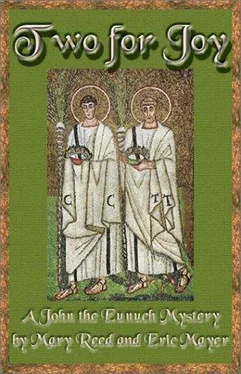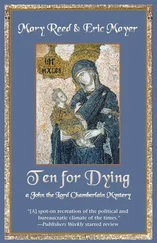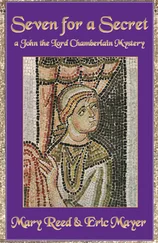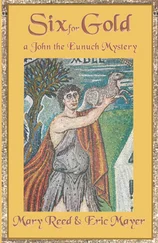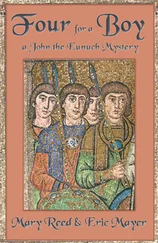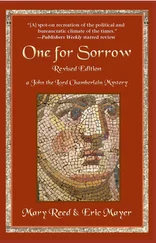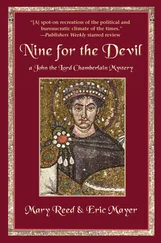Mary Reed - Two for Joy
Здесь есть возможность читать онлайн «Mary Reed - Two for Joy» весь текст электронной книги совершенно бесплатно (целиком полную версию без сокращений). В некоторых случаях можно слушать аудио, скачать через торрент в формате fb2 и присутствует краткое содержание. Жанр: Исторический детектив, на английском языке. Описание произведения, (предисловие) а так же отзывы посетителей доступны на портале библиотеки ЛибКат.
- Название:Two for Joy
- Автор:
- Жанр:
- Год:неизвестен
- ISBN:нет данных
- Рейтинг книги:5 / 5. Голосов: 1
-
Избранное:Добавить в избранное
- Отзывы:
-
Ваша оценка:
- 100
- 1
- 2
- 3
- 4
- 5
Two for Joy: краткое содержание, описание и аннотация
Предлагаем к чтению аннотацию, описание, краткое содержание или предисловие (зависит от того, что написал сам автор книги «Two for Joy»). Если вы не нашли необходимую информацию о книге — напишите в комментариях, мы постараемся отыскать её.
Two for Joy — читать онлайн бесплатно полную книгу (весь текст) целиком
Ниже представлен текст книги, разбитый по страницам. Система сохранения места последней прочитанной страницы, позволяет с удобством читать онлайн бесплатно книгу «Two for Joy», без необходимости каждый раз заново искать на чём Вы остановились. Поставьте закладку, и сможете в любой момент перейти на страницу, на которой закончили чтение.
Интервал:
Закладка:
Unfortunately, the young man had to answer a summons to his father’s study. Senator Flavius Aurelius, it seemed, was displeased with his son. Again.
“Anatolius,” Aurelius began in a weary tone, “as you will doubtless recall, we have had this conversation on numerous occasions. When are you going to desist from being so hasty in your speech?”
The silver-haired senator distractedly pushed a pile of scrolls and codices to one side of his desk, revealing the grinning skull depicted in its tiled top. It was a not so subtle reminder that when work was to be done there was no time to be wasted on fripperies or foolishness. The desk made an odd contrast to the cavorting cupids which the senator’s wife had had painted on the walls of what had been her sitting room. The decorations had not been favored by Aurelius during his wife’s lifetime, but now that she was dead, they served as a comforting reminder of her. Or so Anatolius supposed. Such sentiments were not the sort that his father would share with anyone.
The young man shifted his feet nervously and bowed his head, knowing better than to reply but wishing that his father would finish his latest speech about responsibility and respectability and not wearing his hair too long in the back. “You’ll be mistaken for a Blue,” was how his father usually expressed his disapproval.
“Take this latest nonsense, this ‘Ode to An Empress,’” the senator was saying.
Anatolius looked up sharply.
A wry smile creased Aurelius’ face. “Ah, I see I have finally managed to surprise my son. Yes, I heard about it.”
Anatolius looked down again, studying the mosaic floor. Unlike the desk top, its purely decorative geometrical patterns had no comment to make on mortality.
“The emperor might well dismiss your patronizing the fleshpot where it was overheard as a worldly sin. But as to the verse itself…No doubt you will wish to know the identity of the person who informed me.” Aurelius continued, “Let us just say that it was someone at court. The gods smiled on you, for the person who told me about it is a friend and can be relied upon to be discreet.”
“Father, I only recited it to a few acquaintances. It was a jest.” Anatolius looked hurt, because he was. Paternal lectures always had the effect of making him feel at least ten years younger, or perhaps even twenty. “I do have some care for what I say in public. And in private.”
The senator shook his head, pointing out that however private the room, in a house of that sort little went unnoticed and even less went unremarked.
“Yes, I suppose that’s so,” Anatolius admitted. “I’ll be more careful next time.”
“It would be best if you were careful all the time, for all our sakes. Everyone at court has enemies. Timothy, the vineyard owner who supplies the imperial table with much of its wine, has openly declared his designs on my country estate, for example. He, for one, would not be averse to seeing me fall from favor through your disgrace. Then, too, I have lately been hearing much gossip concerning Senator Balbinus distressing his wife by frequenting that very establishment where you recited your scurrilous verses. If that is indeed true, you are fortunate that he was not there to hear your sorry performance.”
Anatolius frowned and began to speak but his father cut his words short.
“That particular young woman ceased to be your concern when she married Balbinus,” he said. “What I want you to consider in this matter is that if he had overheard you, he would have been only too ready to use your ill-considered words to his own advantage. He and I have been much at odds lately. And need I say Balbinus and Timothy are but two opponents of many?” He nodded toward the documents on which he had been working when Anatolius arrived. “Some day you will have to deal with all this.”
He sighed and gestured to the chair beside his desk. “Now sit down, Anatolius, and let us talk.”
Anatolius, familiar with the course of his father’s lectures, breathed a sigh of relief. Now, most likely, they would discuss chariot racing. After that he would be dismissed and be free to go to the Forum Constantine to hear what new embellishments had been added to the tale of the burning stylites. Better yet, his father had not yet inquired when he intended to visit the tonsor or wear more sober garments as befitted his official position, nor when he might be thinking of getting betrothed. He was not getting any younger, despite how his father could make him feel, and neither was his father.
“All the same,” Anatolius said unrepentantly as he sat down, “it really was a marvelous epigram, rather than a poem. It began ‘Theodora’s father kept bears, now Theodora bare…’”
“Stop!” The senator rarely used that tone.
Anatolius regarded the floor again. He regretted his haste in speaking so lightly. Perhaps his father had a point.
“Now I must tell you that I have made a decision about your future, Anatolius. I believe you would do well in a legal career, and thus I have arranged for you to take up an appointment in the quaestor’s office.”
Anatolius looked at him in stupefied amazement. Surely his ears had deceived him. “The quaestor’s office?”
His father, horribly, nodded confirmation.
“But it’s practically worth my head to squeeze an occasional fine turn of phrase into the emperor’s official correspondence,” Anatolius blurted out. “How will I survive organizing dry old laws and drafting proclamations?”
Aurelius raised his hand slightly but imperiously, quelling his son’s protests. Although the senatorial class lacked the political power it once possessed, its members still passed down to each generation the commanding presence of their ancient rank, not to mention their extensive land holdings.
“It’s true that legal matters have more need of prosaic wherefore’s and whereas’s than of poetic seas that are wine dark,” he admitted. “But it’s time for you to fully enter the adult world, to become a respectable and responsible citizen.” The senator glanced down at the tiled skull. “Not only that, I am getting older and I would like to see a grandson before I make my journey with the dark ferryman. But at least at this point I am not looking to arrange a good marriage for you.”
“Thank Mithra for that,” Anatolius muttered.
“No, Anatolius, for that you can thank your dear mother, who was always the romantic and opposed arranged marriages. And furthermore, you had best guard your speech when uttering an oath. One day your tongue will behead you, if it does not do worse. I will not always be here to smooth things over.”
The older man frowned and Anatolius saw his lips tighten. Perhaps he was thinking of his deceased wife. Aurelius quickly resumed his composure, however, and continued brusquely. “But on to a more pleasant topic. I have decided to hold a banquet in honor of your appointment. The guests will be colleagues of mine, men of good reputation and prominent in their fields. It’s of great assistance to a young man such as you, Anatolius, to have friends in high places, especially when trying to climb up to their level. They can offer you a helping hand.”
“Or they can knock you down and plant their boot in your face,” Anatolius retorted, “depending on which prominent person you mean and from which quarter the political wind happens to be blowing that particular day.”
His father nodded gravely. “I see that you have at least begun to learn some caution, if you do not always exercise it. Remember, at the palace, although it’s always necessary to look ahead and consider all possibilities, it is equally important to guard your back against the blade.” He grimaced as he stood. Anatolius jumped up to offer assistance, resentment at the paternal lecture dissipating as he asked if his father were in pain.
Читать дальшеИнтервал:
Закладка:
Похожие книги на «Two for Joy»
Представляем Вашему вниманию похожие книги на «Two for Joy» списком для выбора. Мы отобрали схожую по названию и смыслу литературу в надежде предоставить читателям больше вариантов отыскать новые, интересные, ещё непрочитанные произведения.
Обсуждение, отзывы о книге «Two for Joy» и просто собственные мнения читателей. Оставьте ваши комментарии, напишите, что Вы думаете о произведении, его смысле или главных героях. Укажите что конкретно понравилось, а что нет, и почему Вы так считаете.
